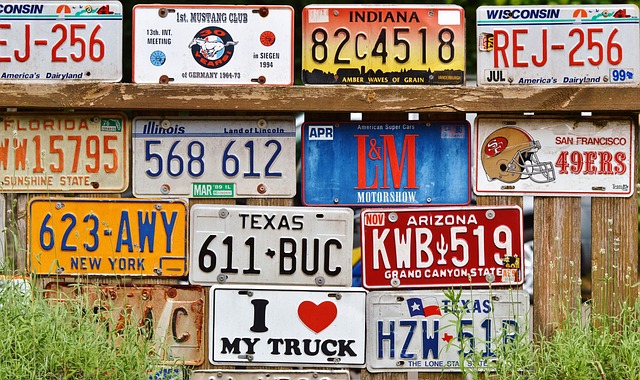The DMV's introduction of an online renewal process has transformed the way individuals update…….
Category: Online DMV Renewal
Online DMV Renewal: A Gateway to Streamlined Vehicle Management
The advent of online DMV (Department of Motor Vehicles) renewal services has revolutionized the way individuals interact with government agencies for vehicle-related transactions. This comprehensive article delves into the intricacies of online DMV renewal, its global impact, economic significance, technological advancements, policy frameworks, and future prospects. Readers will gain a deep understanding of how this service simplifies processes, reduces administrative burdens, and enhances customer experience.
Understanding Online DMV Renewal
Online DMV renewal refers to the digital platform that allows vehicle owners to renew their registration, update their information, and manage other vehicle-related services without physically visiting a DMV office. This innovative approach combines user-friendly interfaces with secure transaction processing, leveraging technology to improve efficiency and accessibility for drivers nationwide.
Global Impact and Trends
The concept of online DMV renewal is not confined to the United States; it’s a global trend that’s gaining traction worldwide. Countries across Europe, Asia, and beyond are implementing similar systems, driven by the need for efficient government services and the convenience they offer citizens. The rise of digital identity verification and e-governance platforms has further accelerated this shift, with countries like Estonia leading the way in fully digital public services.
Economic Considerations
The economic implications of online DMV renewal are significant. By streamlining operations, states can save on administrative costs, reduce operational overheads, and allocate resources more effectively. The reduction in office visits also translates into time savings for citizens, which in turn can boost productivity and local economies. Investment in cybersecurity and infrastructure is crucial to maintain the integrity of these services and protect against fraud and data breaches.
Technological Advancements
The technology behind online DMV renewal encompasses various advancements, including cloud computing, blockchain for secure transactions, artificial intelligence for customer service, and biometric identification systems. These technologies not only enhance the user experience but also lay the groundwork for future innovations in digital governance.
Policy and Regulation
Policies and regulations governing online DMV renewal are critical to ensure the security and privacy of citizens’ data. Compliance with federal standards like the Federal Information Security Management Act (FISMA) and adherence to the General Data Protection Regulation (GDPR) in Europe are essential for maintaining trust and legal compliance.
Challenges and Criticisms
Online DMV renewal faces challenges such as digital divide issues, cybersecurity threats, and the need for robust customer support systems. Addressing these requires a multifaceted approach that includes investing in digital literacy programs, enhancing cybersecurity measures, and providing accessible customer service options.
Case Studies
Several states within the U.S. have successfully implemented online DMV renewal services. For instance, Oregon’s Online Renewal System has significantly reduced wait times and paperwork, leading to high user satisfaction rates. Another example is Virginia’s VASID system, which offers a range of online services and has been praised for its ease of use and efficiency.
Future Prospects
The future of online DMV renewal is poised for growth, with potential expansions into other vehicle-related services such as title transfers and license issuance. Emerging trends like the integration of IoT devices for vehicle registration and the use of machine learning for predictive maintenance are also on the horizon.
Conclusion
Online DMV renewal represents a significant leap forward in streamlining government services. Its global impact, economic benefits, and technological advancements underscore its importance in modernizing the interaction between citizens and their governments. As the digital landscape evolves, online DMV renewal will continue to adapt and offer innovative solutions to enhance user experience and operational efficiency.
FAQ Section
Q: Can all vehicle-related transactions be done online?
A: While many transactions can be handled online, some, such as in-person vision tests or address changes, may still require an office visit. Check your state’s specific guidelines for the latest information.
Q: Is it secure to renew my DMV registration online?
A: Online transactions are typically secured with encryption and other cybersecurity measures. However, users should ensure they’re on the official government website to avoid phishing scams and identity theft.
Q: What happens if I encounter issues while using the online service?
A: Most platforms offer customer support through chatbots, email, or phone. Additionally, many states have a “help” option within the online portal that can guide you through common issues.
Q: Do all states offer online DMV renewal?
A: As of my knowledge cutoff in 2023, a majority of U.S. states offer some form of online vehicle-related service. The availability and scope of services may vary by state.
Q: How do I know if I’m eligible for online DMV renewal?
A: Eligibility typically depends on your state’s regulations and whether your registration is due for renewal. Check with your state’s DMV website or contact them directly to confirm your eligibility.
By addressing these frequently asked questions, users can navigate the online DMV renewal process with greater confidence and ease.
Simplify Your Renewal: A Guide to Online DMV Services
The article discusses the significant improvements made to the state DMV renewal process through th…….
Simplify Your Life: A Guide to Fast and Easy Online DMV Renewals
The article discusses the advancements and benefits of the DMV's online renewal process for dr…….
Fast-Track Your License & Registration Renewals with DMV Online Services
The article discusses the modernization of vehicle registration and driver's license renewals …….
Simplify Your Renewal: A Step-by-Step Guide to the DMV’s Online Vehicle Registration Process
California's Department of Motor Vehicles (DMV) has introduced a comprehensive online platform…….
Simplify Your Renewal: A Guide to Fast DMV Services Online
The DMV online renewal process has revolutionized the way individuals handle driver's license …….
Streamlined Driving: Your Guide to Easy Online DMV Renewals
The DMV's online renewal process has revolutionized the way individuals handle driver's l…….
Mastering the DMV Online Renewal Process: Your Guide to Fast and Efficient Driver’s License and Vehicle Registration Updates
The DMV online renewal process has streamlined the way individuals handle driver's license and…….
Effortless Online DMV: Your Guide to Renewing Vehicle Registration and Driver’s License
The state DMV has introduced an online renewal process that significantly simplifies the experience…….
Navigate Your DMV Renewal Online with Ease: A Guide to Streamlined Vehicle and Driver’s License Services
The DMV's online renewal process for both vehicle registrations and driver's licenses has…….









